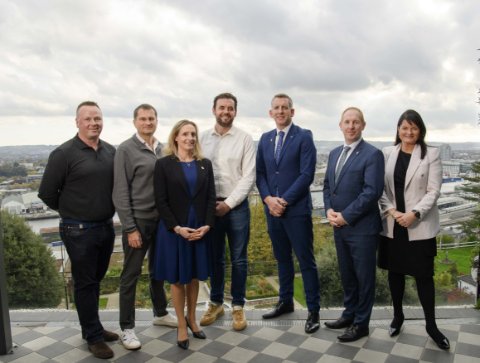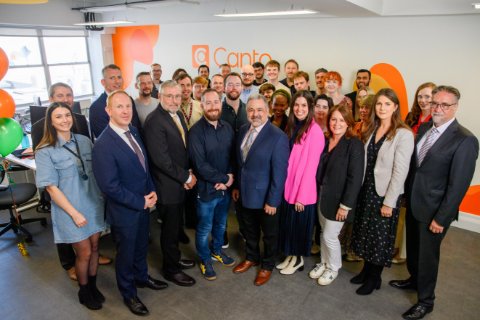Prof Paul Hurley of UCC will lead a four-year programme to conduct research into AR technologies with a cohort of Tyndall PhD students.
Meta has announced a partnership with the Tyndall National Institute in Cork to establish a research programme in the underlying technologies that power augmented reality platforms.
In an announcement, Meta said the four-year programme will be led by Prof Paul Hurley, who was recently appointed as Meta’s industrial chair in semiconductor technologies at Tyndall and the School of Chemistry at University College Cork (UCC).
Based in UCC, Tyndall is an Irish deep-tech research centre specialising in electronics and photonics. It brings academia and industry together to transform research into products for a range of markets including electronics, communications and energy.
Hurley will lead a multidisciplinary research team, including the appointment of a cohort of Tyndall PhD students, to help advance the state of AR technology alongside Meta.
“The goal of this research engagement with Meta is to investigate heterogeneous systems and determine their impact on efficiency, further informing critical technology adoption in future products,” said Hurley.
Pádraig Hughes, head of Reality Labs at Meta in Cork, said that, as Meta’s chair, Hurley will advance research in miniature light display technologies for augmented reality technology.
“Meta’s work with Tyndall will further develop our semiconductor research programme and hopefully lead to new advances in display technologies and product innovations for the AR sector,” added Prof William Scanlon, CEO of Tyndall National Institute.
Tyndall has a network of more than 200 industry partners and customers worldwide and is home to a multidisciplinary research community of more than 600 people of 52 nationalities, including more than 150 postgraduates.
In April, Tyndall and Trinity College Dublin jointly appointed Prof Holger Claussen as a professor of wireless communications. He will build a team of researchers at Tyndall, UCC and Trinity to advance wireless comms tech in areas such as quantum systems and AI.
Vish Gain
This article originally appeared on www.siliconrepublic.com and can be found here
Meta has announced a partnership with the Tyndall National Institute in Cork to establish a research programme in the underlying technologies that power augmented reality platforms.
In an announcement, Meta said the four-year programme will be led by Prof Paul Hurley, who was recently appointed as Meta’s industrial chair in semiconductor technologies at Tyndall and the School of Chemistry at University College Cork (UCC).
Based in UCC, Tyndall is an Irish deep-tech research centre specialising in electronics and photonics. It brings academia and industry together to transform research into products for a range of markets including electronics, communications and energy.
Hurley will lead a multidisciplinary research team, including the appointment of a cohort of Tyndall PhD students, to help advance the state of AR technology alongside Meta.
“The goal of this research engagement with Meta is to investigate heterogeneous systems and determine their impact on efficiency, further informing critical technology adoption in future products,” said Hurley.
Pádraig Hughes, head of Reality Labs at Meta in Cork, said that, as Meta’s chair, Hurley will advance research in miniature light display technologies for augmented reality technology.
“Meta’s work with Tyndall will further develop our semiconductor research programme and hopefully lead to new advances in display technologies and product innovations for the AR sector,” added Prof William Scanlon, CEO of Tyndall National Institute.
Tyndall has a network of more than 200 industry partners and customers worldwide and is home to a multidisciplinary research community of more than 600 people of 52 nationalities, including more than 150 postgraduates.
In April, Tyndall and Trinity College Dublin jointly appointed Prof Holger Claussen as a professor of wireless communications. He will build a team of researchers at Tyndall, UCC and Trinity to advance wireless comms tech in areas such as quantum systems and AI.
Vish Gain
This article originally appeared on www.siliconrepublic.com and can be found here



